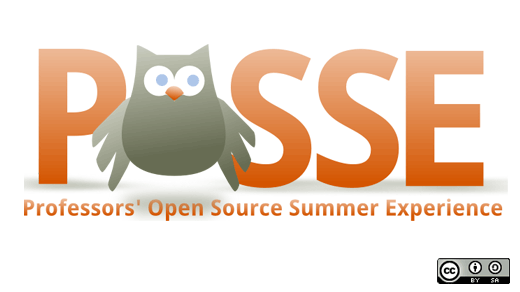What is Humanitarian Free and Open Source Software (HFOSS) in education and how can we get more students involved? HFOSS is open source software that has a humanitarian purpose such as disaster management, health care, economic development, social services, and more. Experience with undergraduate participation in HFOSS shows it can both motivate students and provide excellent learning opportunities. There is also an indication that it can help attract and retain female students.
A workshop to help prepare instructors to teach courses in which students participate in HFOSS projects in a variety of ways and to meet other instructors who are interested in working together on HFOSS education is set for May 28-30, 2014 at Drexel University, in Philadelphia, Pennslyvania. The workshop is an extended version of the Red Hat supported Professor's Open Source Summer Experience (POSSE) program.
Workshop format
The NSF-funded workshop is for instructors who have a strong desire to support student involvement in HFOSS projects. Unlike many workshops in which the content is concentrated in the face-to-face meeting, the workshop has three stages:
- Stage 1: Starts April 1, 2014 with online activities. These activities will include interaction with the foss2serve team and workshop participants. The activities will take about 2 hours per week over an eight-week period. Online meetings will be held with groups of participants periodically to answer questions and help guide learning.
- Stage 2: The actual face-to-face workshop held in Philadelphia May 28-30. The face-to-face interactions will be lead by a team of representatives including FOSS organizations and POSSE alumni. During this time, participants will learn how the material that they have been absorbing prior to the face-to-face event is used in actual FOSS projects. Participants will also learn ways to incorporate that material into their classes and identify and/or create actual assignments.
- Stage 3: Starts immediately after stage 2 and consists of interactions among small groups so that participants will have support while involving students in an HFOSS project in the classroom. These groups will consist of 6-10 participants who are focused on a particular HFOSS project. The idea is that group members can share knowledge and even work collaboratively on the same HFOSS project.
How to apply
To apply for a place in the workshop, download the application and submit it to: Stoney Jackson at stoney.jackson@wne.edu by March 27, 2014. We will notify you of the status of your application by April 1, 2014. Prior work with FOSS projects is not required.
Support
NSF funding will provide some support for participant expenses. This support will provide two nights lodging and meals during the workshop. Travel costs will also be covered within the budget limits. At least $450 will be available for travel for each participant, with additional funds provided to the extent possible.
For additional Information visit Teaching Open Source.







2 Comments